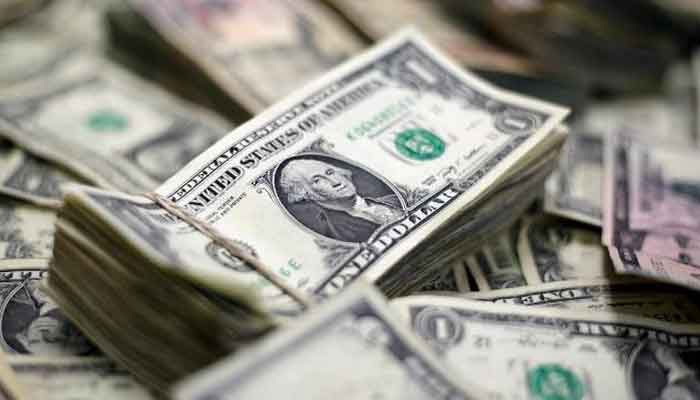Investment hopes
LAHORE: Survival is the name of the game. The state is making efforts to survive, businesses are struggling to survive, and workers do not aspire for better jobs but only hope to retain the job in hand.
One hopes that the expected investments from the Gulf countries and Saudi Arabia will materialize. It would be a blessing to receive investments instead of loans. However, these investments would likely be in high-tech industries or corporate farming. This will be good for our economy, but these investments would not create much employment. What we need is investment in manufacturing, particularly in value-added textiles. This investment would come if the Chinese decided to relocate their textile industry to Pakistan, to the industrial zone established on the CPEC route.
The Chinese investment and expertise in textiles have lifted Vietnam and Cambodia from non-entities in textiles to major players in the global apparel trade. Value-added textiles are the most labor-intensive manufacturing sector and also a main avenue for providing jobs to women. Bangladesh, India, and Cambodia have empowered their women through their garment factories. However, the Chinese are still reluctant to relocate their textile industries to Pakistan despite the fact that Pakistan possesses the necessary human resources skilled in textile trade and is a cotton-producing country.
This is probably because of the inconsistent textile policies in Pakistan. A decade ago, the textile sector suffered from a scarcity of power and energy, and now that supplies are no problem, high tariffs are. The Chinese would come in a stable environment with clear, guaranteed long-term policies of ten years. The actual benefits of CPEC would be lost if we failed to attract Chinese investment along its route. The domestic textile sector has disappointed planners, as they have been promising for the last five years to establish 1,000 garmenting units without establishing any. Until we establish new apparel factories, our workers will have no major avenue where jobs could be created.
Housing construction is another channel that could create a large number of jobs. But the problem is that there is no shortage of houses for the affluent segment of society. Big investors come when there is demand for large residences and the population can afford them. In our country, there is an acute shortage of small houses, particularly in cities. Investors might come and build these houses, but the problem is that the lower segment of the population cannot afford to buy these houses, even at very low prices. Around 40 percent of the population is living in poverty, and they are the ones that need houses. When they cannot afford decent food, how can they buy houses, even on installments?
These are the realities of our economy. The priority of the state is to survive, which it will after great efforts. The electorate will find it hard to pull through, but they have no choice. Only the improvement of service delivery by state institutions could mitigate their miseries. Eid is a festive occasion in Pakistan, but festivities are not possible in economic gloom. This year, Eid will be celebrated by the majority as a religious ritual only.
-
 Andrew Mountbatten-Windsor In A Fix Over New Disturbing TMZ Photos
Andrew Mountbatten-Windsor In A Fix Over New Disturbing TMZ Photos -
 Eric Dane Opened Up About Releasing His Memoir Just Two Months Before His Death Due To ALS Complications
Eric Dane Opened Up About Releasing His Memoir Just Two Months Before His Death Due To ALS Complications -
 Zendaya, Tom Holland Already Married? Actress Shows Off New Ring
Zendaya, Tom Holland Already Married? Actress Shows Off New Ring -
 King Charles Holds Emergency Meeting After Andrew Arrest: 'Abdication Is Not Happening'
King Charles Holds Emergency Meeting After Andrew Arrest: 'Abdication Is Not Happening' -
 Amazon Can Be Sued Over Sodium Nitrite Suicide Cases, US Court Rules
Amazon Can Be Sued Over Sodium Nitrite Suicide Cases, US Court Rules -
 'Vikings' Star Mourns Eric Dane's Death
'Vikings' Star Mourns Eric Dane's Death -
 Patrick Dempsey Reveals Eric Dane's Condition In Final Days Before Death
Patrick Dempsey Reveals Eric Dane's Condition In Final Days Before Death -
 'Heartbroken' Nina Dobrev Mourns Death Of Eric Dane: 'He'll Be Deeply Missed'
'Heartbroken' Nina Dobrev Mourns Death Of Eric Dane: 'He'll Be Deeply Missed' -
 Andrew Mountbatten-Windsor’s Arrest: What Happened When A Royal Was Last Tried?
Andrew Mountbatten-Windsor’s Arrest: What Happened When A Royal Was Last Tried? -
 Alyssa Milano Expresses Grief Over Death Of 'Charmed' Co-star Eric Dane
Alyssa Milano Expresses Grief Over Death Of 'Charmed' Co-star Eric Dane -
 Prince William, Kate Middleton Camp Reacts To Meghan's Friend Remarks On Harry 'secret Olive Branch'
Prince William, Kate Middleton Camp Reacts To Meghan's Friend Remarks On Harry 'secret Olive Branch' -
 Daniel Radcliffe Opens Up About 'The Wizard Of Oz' Offer
Daniel Radcliffe Opens Up About 'The Wizard Of Oz' Offer -
 Channing Tatum Reacts To UK's Action Against Andrew Mountbatten-Windsor
Channing Tatum Reacts To UK's Action Against Andrew Mountbatten-Windsor -
 Brooke Candy Announces Divorce From Kyle England After Seven Years Of Marriage
Brooke Candy Announces Divorce From Kyle England After Seven Years Of Marriage -
 Piers Morgan Makes Meaningful Plea To King Charles After Andrew Arrest
Piers Morgan Makes Meaningful Plea To King Charles After Andrew Arrest -
 Sir Elton John Details Struggle With Loss Of Vision: 'I Can't See'
Sir Elton John Details Struggle With Loss Of Vision: 'I Can't See'




